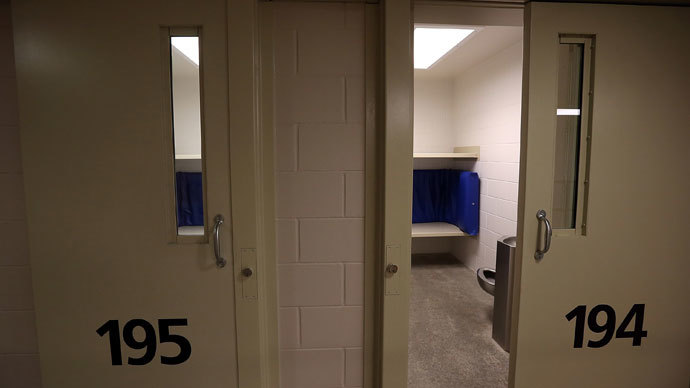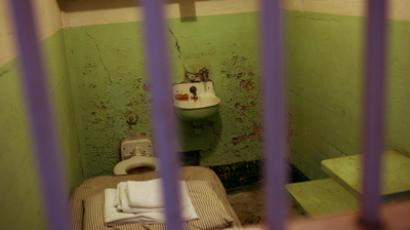Majority of private prison contracts demand taxpayer-backed lockup quotas - report

The majority of contracts between local US governments and for-profit prisons require “lockup quotas” and “low crime taxes,” according to a new report.
The report, which was released by In the Public Interest, states
that 62 percent of private prison contracts studied by the group
require states to keep 80 to 100 percent of prison beds occupied.
It also revealed that taxpayers compensate the private companies
if the number of prisoners falls below the quota – a policy which
guarantees profit within the mass incarceration industry.
For instance, when Colorado did not meet its lockup quotas due to
dropping crime rates, the state had to pay $2mn based on its
contract with the Corrections Corporation of America (CCA) - one
of America’s largest private prison companies.
A 90 percent lockup quota at the Lake Erie Correctional
Institution in Ohio led to “cutting corners on safety,
including overcrowding, areas without secure doors, and an
increase in crime both inside the prison and the surrounding
community.” The facility is run by CCA.
The report found that Arizona, Louisiana, Oklahoma, and Virginia
have the highest lockup quotas in the nation, requiring 95 to 100
percent occupancy.
The private prison industry claims that their services offer
states opportunities to save money. However, the report says that
“numerous studies and audits have shown these claims of cost
savings to be illusory, and bed occupancy requirements are one
way that private prison companies lock in inflated costs after the
contract is signed.”
“These provisions guarantee prison companies a consistent and
regular revenue stream, insulating them from ordinary business
risks,” the report states.














